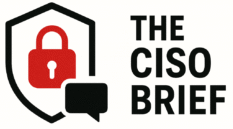Summary Points
-
Data Breach Overview: Manpower, along with its subsidiaries, is notifying 144,189 individuals about a data breach that occurred between December 29, 2024, and January 12, 2025, leading to the potential theft of personal information.
-
Attack Details: The RansomHub ransomware group claimed responsibility for the breach, allegedly stealing about 500GB of sensitive data, including personal details and corporate documents, before removing the entry from their dark web site, suggesting a possible ransom payment.
-
Company Response: In the wake of the incident, Manpower has implemented enhanced security measures, is cooperating with the FBI, and is providing free credit monitoring and identity theft protection services to those affected.
- Financial Context: ManpowerGroup reported revenues of $17.9 billion last year, highlighting the impact this breach may have on their operations and reputation, especially given their extensive clientele of over 100,000 organizations.
Key Challenge
In December 2024, a significant data breach at ManpowerGroup, a leading multinational staffing firm, compromised the personal information of approximately 145,000 individuals. The breach was detected on January 20, 2025, during an investigation into an IT outage at the company’s Lansing, Michigan office. Unidentified attackers gained unauthorized access to Manpower’s systems between December 29 and January 12, potentially acquiring a trove of sensitive data, including passport scans, Social Security numbers, and corporate financial statements. The ransomware group known as RansomHub subsequently claimed responsibility, asserting that they had stolen around 500GB of data from the firm. Although RansomHub has since removed the company listing from their dark web leak site—implying a possible ransom payment—Manpower has initiated measures to bolster its cybersecurity and is now collaborating with the FBI to investigate the breach.
This alarming incident is reported through a filing made to the Office of the Maine Attorney General, with official notifications being dispatched to those affected. ManpowerGroup, which boasts significant revenues and clients worldwide, is now providing impacted individuals with complimentary credit monitoring and identity theft protection services via Equifax as a protective measure against potential misuse of their compromised data. The unfolding situation highlights the escalating threats posed by sophisticated cybercriminals and underscores the necessity for robust cybersecurity frameworks across major corporations.
Critical Concerns
The recent data breach at Manpower, affecting nearly 145,000 individuals, poses significant risks not only to the company but also to its vast network of clients and partners. Given ManpowerGroup’s extensive reach, with over 100,000 clients globally, the breach could catalyze a domino effect, jeopardizing sensitive information across multiple industries. Clients reliant on Manpower’s staffing services may face reputational damage, operational disruptions, and regulatory scrutiny, particularly if personally identifiable information (PII) related to employees or clients is compromised, heightening their vulnerability to further cyberattacks. Moreover, the involvement of the RansomHub ransomware gang—known for its menacing repertoire—amplifies the likelihood that breached data could be weaponized against other organizations, resulting in financial losses and legal liabilities due to identity theft or exposure in the competitive landscape. Therefore, the ramifications are not merely contained within Manpower; they extend to erode trust across the broader business ecosystem, prompting organizations to reassess their cybersecurity measures to mitigate similar threats.
Possible Actions
The recent data breach involving Manpower, affecting approximately 145,000 individuals, underscores the critical importance of immediate and effective remediation to mitigate potential repercussions, including identity theft and associated financial losses.
Mitigation Steps
- Notification: Inform impacted individuals promptly.
- Credit Monitoring: Offer free credit monitoring services to affected parties.
- Identity Theft Protection: Provide resources for identity theft recovery.
- System Audits: Conduct a thorough audit of compromised systems.
- Strengthen Cybersecurity: Implement enhanced security protocols and training.
- Incident Response Plan: Develop or refine an incident response strategy.
- Public Communication: Maintain transparency with the public and stakeholders about the breach.
NIST CSF Guidance
The NIST Cybersecurity Framework (CSF) emphasizes the significance of both prevention and rapid response to incidents. For more detailed directives on incident management, refer to NIST SP 800-61 Revision 2, which outlines processes for handling cybersecurity vulnerabilities and breaches effectively.
Advance Your Cyber Knowledge
Discover cutting-edge developments in Emerging Tech and industry Insights.
Access world-class cyber research and guidance from IEEE.
Disclaimer: The information provided may not always be accurate or up to date. Please do your own research, as the cybersecurity landscape evolves rapidly. Intended for secondary references purposes only.
Cyberattacks-V1

